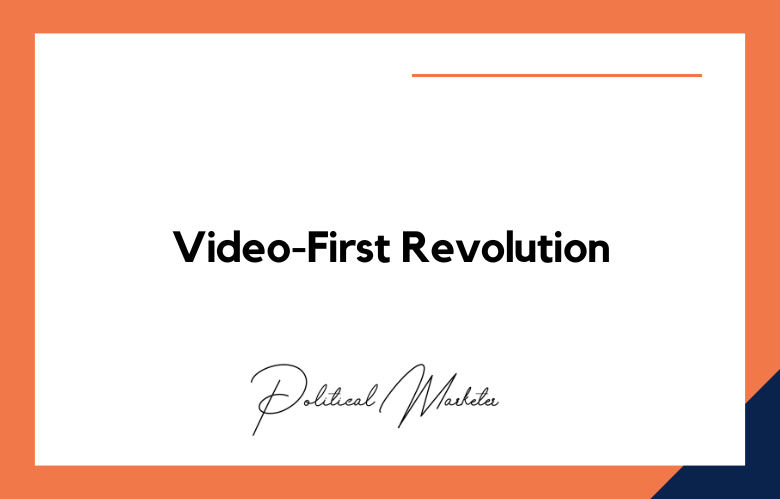Political campaigns face unique challenges when it comes to cybersecurity. They are often seen as a soft target for cybercriminals keen to exploit potential weaknesses to gain access to sensitive data or spread malicious messages.
One of the most dangerous threats they face is unpatched zero-day exploits. Let’s explore what this type of attack looks like and what steps can be taken to prevent it.
What is an Unpatched Zero Day Exploit?
An unpatched zero-day exploit is a security vulnerability that the software developer has not yet patched but that hackers have already discovered and begun exploiting.
This attack is hazardous because organizations don’t know they’re vulnerable until it’s too late – typically when the hacker has already gained access to their systems.
Unpatched zero-day exploits are security vulnerabilities in software programs or services that attackers can use to gain unauthorized access and control systems or data.
It is important to note that these vulnerabilities are only present briefly before the developers can patch them up and make them secure again.
It is during this window of time when attackers can gain access and cause significant damage.
How Can Political Campaigns Protect Themselves?
The most crucial step in protecting against unpatched zero-day exploits is staying updated on patches and updates from the software vendor as soon as they become available.
This can be done manually by downloading the patch and installing it yourself, or you can have your IT team set up automatic patching so you don’t have to worry about it.
Antivirus protection with real-time scanning capabilities will help protect against malicious activity on your network or website.
A security policy for your staff members will ensure everyone understands their responsibility for keeping data safe and secure.
Protecting Political Campaigns from Unpatched Zero Day Exploits
Political campaigns are incredibly vulnerable to digital attacks, as they rely heavily on technology and have access to sensitive information.
As such, these campaigns must take the necessary steps to protect themselves from potential cyber threats.
One of the most dangerous threats political campaigns face is unpatched zero-day exploits, vulnerabilities in software applications, or other services that attackers can exploit before developers can patch them.
We will discuss how organizations can protect their political campaigns against unpatched zero-day exploits.
Assessing Risk with Vulnerability Scanners
The first step in protecting your political campaign from unpatched zero-day exploits is to use a vulnerability scanner to assess risk.
A vulnerability scanner is an automated tool that scans your network and systems for potential security vulnerabilities and offers advice on how to remediate them.
These scanners can help you identify any weak links in your system that could be exploited by malicious actors and provide guidance on fixing them before they become a problem.
Regularly running a vulnerability scan should be a part of any political campaign’s cybersecurity strategy.
Applying Patches Quickly and Securely
Once you have identified potential vulnerabilities, the next step is to patch them as quickly and securely as possible.
You must install patches as soon as they become available because attackers often exploit known vulnerabilities before they are fixed.
You should ensure that all patches are correctly applied and securely so as not to introduce new security issues into your system.
Developing an Incident Response Plan
Political campaigns need to develop an incident response plan in case of an attack or breach.
Having an incident response plan will ensure that everyone on the team knows what needs to be done to investigate, contain, and mitigate any potential issues quickly and efficiently.
An effective incident response plan should include steps for identifying suspicious activity, gathering evidence, notifying authorities if necessary, containing the damage, restoring systems, and communicating with stakeholders about the incident.
Identifying Vulnerabilities in Software
The first step in protecting your political campaign is understanding what a zero-day exploit is and how it works.
A zero-day exploit is a security vulnerability the software vendor has not identified and therefore does not have an available patch or fix.
These vulnerabilities can be exploited by malicious actors who use them to gain access to sensitive information or hijack systems, networks, or applications for their purposes.
To prevent such attacks, organizations must identify any unpatched vulnerabilities in their systems and take action to address them as soon as possible.
Implementing Security Protocols
Once the vulnerabilities are identified, the next step is implementing robust security protocols to protect against potential threats.
This includes implementing multi-factor authentication (MFA) for all user accounts, regularly monitoring network traffic for suspicious activity, and using encryption algorithms such as
AES 256-bit encryption when transmitting sensitive data. Organizations should also deploy advanced intrusion detection systems.
(IDS) that use machine learning algorithms to detect anomalies in network traffic that may indicate a potential attack or breach attempt.
Regular system updates should be implemented to address any newly discovered vulnerabilities quickly and efficiently.
Prevention Strategies for Political Campaigns
Given the high-stakes nature of political campaigns, organizations must take extra precautions to protect themselves from zero-day exploits that could cause severe damage if exposed. Here are some strategies for prevention:
Stay up-to-date on software updates: Software developers often issue patches for known vulnerabilities, so ensuring all systems are running the latest versions available is essential.
If a system hasn’t been updated in some time, there could be undiscovered vulnerabilities waiting to be exploited by hackers.
Use tools that scan for vulnerabilities: Tools available can monitor your network and alert you of any potential weaknesses, allowing you to take action before a hacker takes advantage of them.
These tools should be used regularly to stay ahead of any possible threats.
Educate staff on best practices: Training staff members on basic cybersecurity principles can go a long way toward preventing zero-day exploits and other attacks.
Ensure all staff members understand best practices such as using strong passwords, avoiding clicking suspicious links or downloading unknown files, and never sharing sensitive information over email or social media.
Utilize cyber security insurance: Cyber security insurance provides financial protection if a breach occurs due to an unpatched zero-day exploit or another attack vector.
It also helps cover costs associated with recovery efforts, such as data restoration and legal fees resulting from a breach investigation or litigation related to the incident.
Conclusion:
Protecting political campaigns from unpatched zero-day exploits requires vigilance and dedication from campaign staff members and IT professionals.
By staying up-to-date on software updates, utilizing vulnerability scanning tools, educating personnel on best practices, and investing in cyber security insurance coverage, organizations can significantly reduce their risk of falling victim to these types of attacks.
That said, no prevention measures can guarantee complete safety; however, these steps can dramatically increase the chances that your organization will remain secure while navigating the complex digital landscape during an election cycle or any other period throughout the year!
Call: +91 9848321284
Email: [email protected]
Zero Day Exploits Prevention for Political Campaigns: FAQs
What Are Zero-Day Exploits?
Zero-day exploits are security vulnerabilities in software or hardware that are unknown to the vendor and have no official patch, making them prime targets for cyberattacks.
Why Are Political Campaigns At Risk From Zero-Day Attacks?
Political campaigns handle sensitive data, use multiple digital platforms, and operate on tight timelines—making them attractive and vulnerable targets for sophisticated cyber attackers.
What Does ‘Unpatched’ Mean In This Context?
Unpatched means that the software flaw or security hole has not been fixed by an update or security patch from the vendor, leaving systems exposed.
How Do Hackers Use Zero-Day Exploits In Campaigns?
Hackers exploit these vulnerabilities to gain unauthorized access, steal voter or donor data, manipulate communications, or sabotage campaign operations.
How Can Political Campaigns Detect Zero-Day Threats?
Detection often relies on advanced threat intelligence systems, behavior monitoring, anomaly detection tools, and collaboration with cybersecurity experts.
Are Standard Antivirus Programs Enough To Prevent These Exploits?
No. Traditional antivirus software is not typically equipped to detect zero-day threats because these exploits are previously unknown and often do not match existing signatures.
What Are The Consequences Of A Successful Zero-Day Attack?
Consequences include data theft, public reputation damage, disruption of operations, donor distrust, misinformation dissemination, and regulatory investigations.
What Role Does Patch Management Play In Prevention?
Regularly updating software and operating systems reduces the number of known vulnerabilities, lowering the campaign’s attack surface and improving security posture.
How Important Is Endpoint Security For Political Teams?
Extremely important. Laptops, smartphones, and tablets are common points of entry for zero-day attacks, especially in remote or field operations.
Can Email Be Used To Deploy Zero-Day Exploits?
Yes. Spear-phishing emails are a common method of delivering malware that exploits zero-day vulnerabilities once an attachment is opened or a link is clicked.
How Do Campaigns Prepare A Zero-Day Incident Response Plan?
By defining response protocols, designating a cybersecurity lead, running breach simulations, and ensuring secure backup and communication channels.
What Security Tools Can Help Mitigate These Risks?
Endpoint Detection and Response (EDR), Intrusion Prevention Systems (IPS), sandboxing environments, and real-time threat intelligence platforms are highly effective.
Are Cloud-Based Campaign Tools Safer From Zero-Day Attacks?
Cloud tools with robust security frameworks and regular updates are generally safer but still vulnerable if misconfigured or integrated with insecure apps.
Should Political Campaigns Hire Cybersecurity Professionals?
Yes. A dedicated cybersecurity consultant or team ensures continuous monitoring, rapid response, and strategic defense against advanced threats.
What Are Zero-Day Brokers?
These are individuals or groups who find and sell information about zero-day vulnerabilities to governments, cybercriminals, or security vendors—sometimes legally, often not.
Can Government Agencies Help With Zero-Day Defense?
Yes. Agencies like CERT-In, CISA (US), and national cybercrime units can provide alerts, support, and intelligence regarding active zero-day threats.
Is Two-Factor Authentication Effective Against Zero-Day Exploits?
It adds an extra layer of defense, especially against unauthorized logins, but does not directly protect against software-level zero-day vulnerabilities.
What Is The Role Of Cyber Threat Intelligence In Prevention?
It helps anticipate potential attacks by analyzing global threat patterns, identifying suspicious behavior, and informing proactive defense measures.
How Often Should Security Audits Be Conducted During A Campaign?
Security audits should be done monthly or bi-weekly during active campaign periods, especially after software updates or major events.
What Is The Long-Term Impact Of Ignoring Zero-Day Protection?
Neglecting zero-day security can lead to repeated breaches, loss of trust, legal consequences, electoral failure, and long-term reputational harm.










